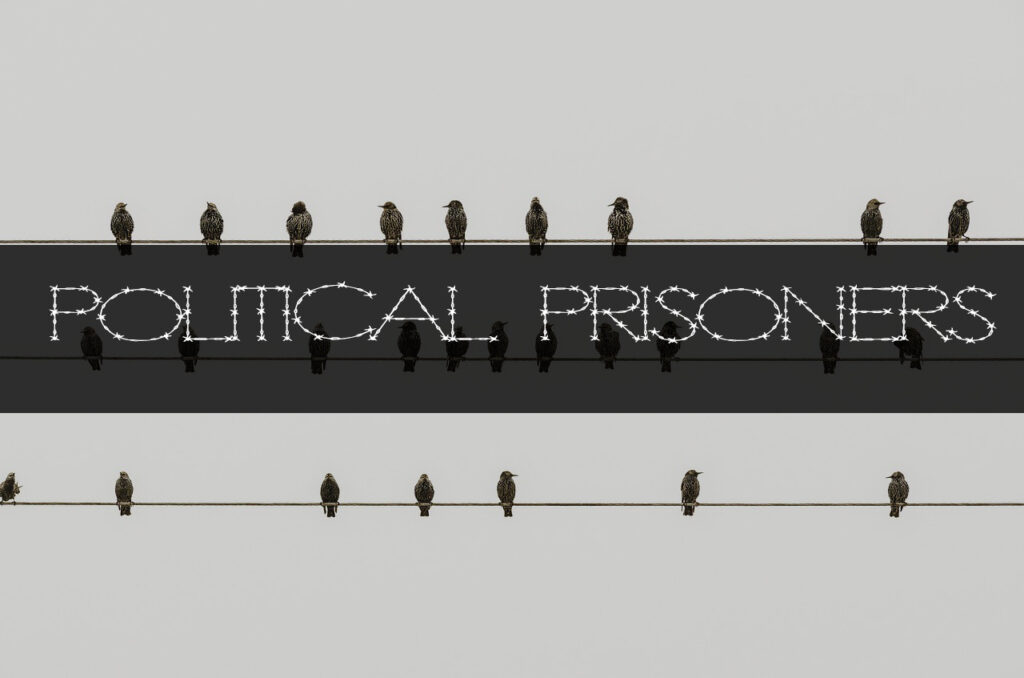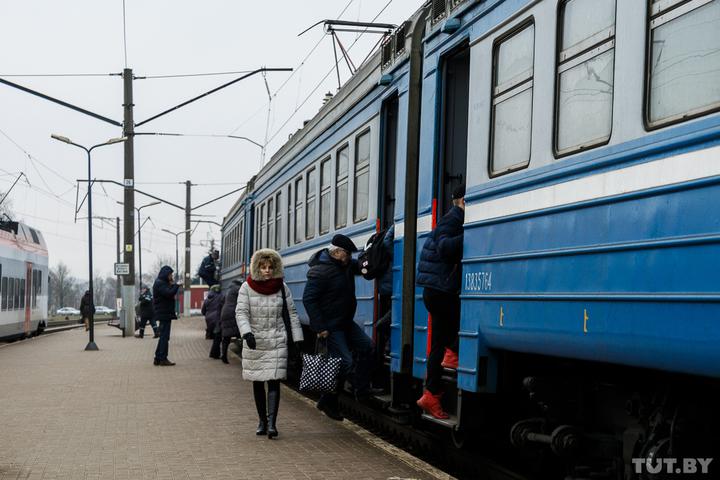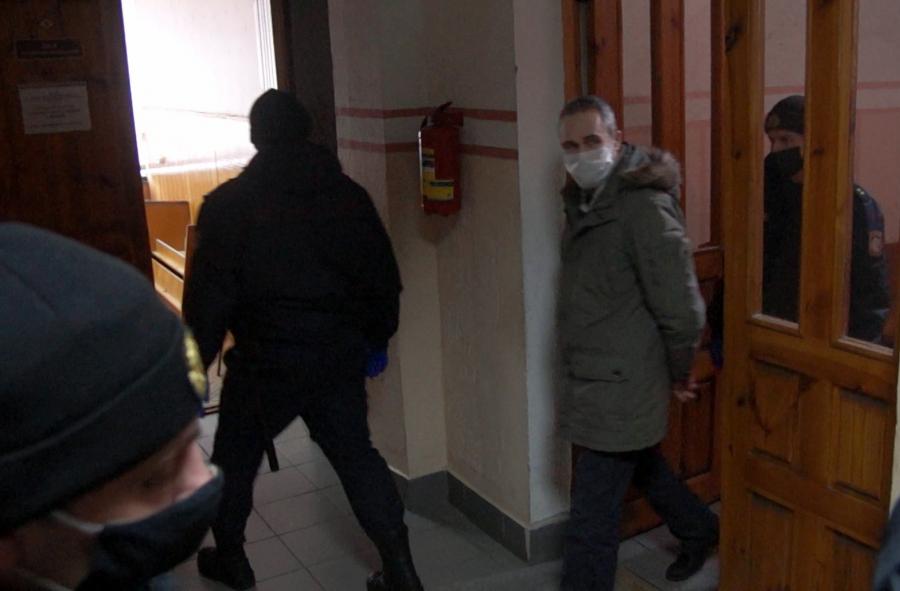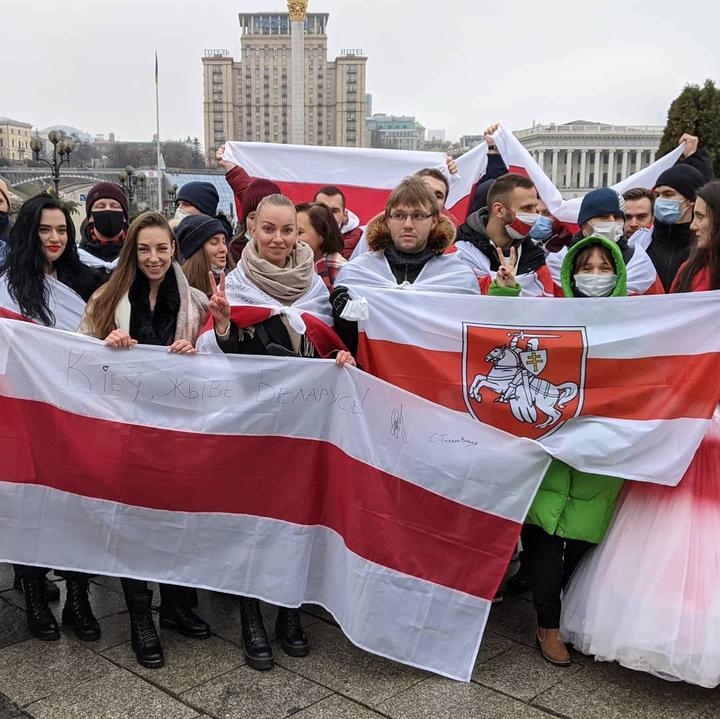Total prison time in political criminal cases for the month of February adds up to 168.5 years; new legislation has increased penalties for protests; bullying of pensioners in the detention facility and in court; how the “People’s Embassies” function
1 March 2021 | Voice of Belarus

Source: t.me/kyky_org
In February alone political prisoners in criminal cases received a total of 168.5 years of imprisonment
According to the estimates of human rights activists, in Belarus in February 102 people (88 men and 14 women) had been convicted in political criminal cases including three minors who had received prison terms (from two to six years in a colony).
The total number of years received in the criminal cases in February was 168.5.

The amendments to the administrative legislation came into effect. Now “people’s” article 23.34 is listed as number 24.23
On 1 March the new Procedural Code of Administrative Offenses (PICoAP) came into effect.
Important changes:
The police will no longer be able to hold mothers of minor children for more than 3 hours.
Courts can be held behind closed doors if witnesses say there is a threat to their safety.
And now they can temporarily restrict traveling abroad and one’s right to drive a car to provide the necessary conditions for an administrative process.
Also, fines for participation in illegal mass events have more than doubled. Previously, the maximum amount for the most common articles since August has been limited to 60 base values which is about 550 euros or 670 USD. But under the new code fines can go up to 200 base values. This is about EUR 1,840 or USD 2,230 for the right to express one’s opinion. The number of days of arrest has doubled (from 15 to 30). The punishment for drivers who honk at the rallies has increased.
At the same time, a draft of the updated Criminal Code was handed over to the Lukashenko administration. The document is planned to be adopted in April this year. The code may contain articles stipulating responsibility for extremism (it is possible that white-red-white symbols will fall within the scope of this norm), repeated violations of the procedure for holding mass events, and illegal collection and dissemination of personal data.

The system continues to suppress any manifestation of dissent
In various Minsk courts there were the trials of the pensioners who on 26 February had been reading books in the Belarusian language on the train and had been detained by police officers. Eight of the 14 detainees were fined almost 8 thousand rubles (more than 2,500 EUR or 3,076 USD). One 66-year-old woman was arrested for 20 days.
One of the pensioners brought the judge’s attention to the conditions of her detention.
“I have arthrosis. I have been sleeping on the floor under the table for the third night. Is this normal?” she asked.
“The court is not responsible for the conditions in the places of your detention. But I’ve heard you,” explained the judge.

54-year-old Uladzimir Malakhouski was sentenced to 3.5 years in prison. He was accused of alleged violence against law enforcement officers during the protests on 13 September 2020. Uladzimir did not admit his guilt. In addition, the convict was ordered to pay the three injured police officers 3 thousand Belarusian rubles of compensation (about 1 thousand euros). Malakhouski is the father of two minor children. He has cancer, has undergone chemotherapy four times, and has a disability.

Source: Viasna Human Rights Centre
In Maladzechna some of the detained “skiers” were released from the detention facility. They were detained on 14 February. 19 participants of the ski trip were convicted of participating in an illegal mass event. Five men and two women received 15 days of arrest. Three other men received 20 days in prison. Nine more women were fined. Some of the detained skiers left the police office wearing special ski shoes.

How the “People’s Embassies” of Belarus function abroad
“People’s embassies” of Belarus abroad work in 17 countries. They were opened in December 2020. The ceremony was held online with the participation of Sviatlana Tsikhanouskaya, Pavel Latushka, and MEPs. These volunteer organizations are dedicated to helping those who have been forced to emigrate. Today, representatives of several “embassies” told the information source TUT.BY how they help the Belarusians who had come to their countries after the elections, and how local officials perceived them.
“Our activity is part of the wide informal community of Belarusians abroad. We are glad that in such difficult times Belarusians all over the world support each other and unite in a single movement of solidarity,” says Yulia Kaminskaya, a representative of the “People’s Embassy” in Ukraine.
The “Embassy” in Germany is engaged in informing the country’s public about the situation in Belarus, establishing and maintaining contacts with government organizations, public associations, trade unions, businesses, scientific and cultural circles as well as receiving and transmitting information to organizations.
But in Ireland there is no official state representation of Belarus. Therefore, the people’s embassy replaces such to some extent. “This initiative is designed to fill the temporary gap of the legitimate authorities in Belarus. We hope that this year the political crisis will end and Belarus will have legitimate leadership,” says Ales, the frontman of the embassy.

Source: TUT.BY
For more information on the events of 1 March 2021, please visit Infocenter Free Belarus 2020: